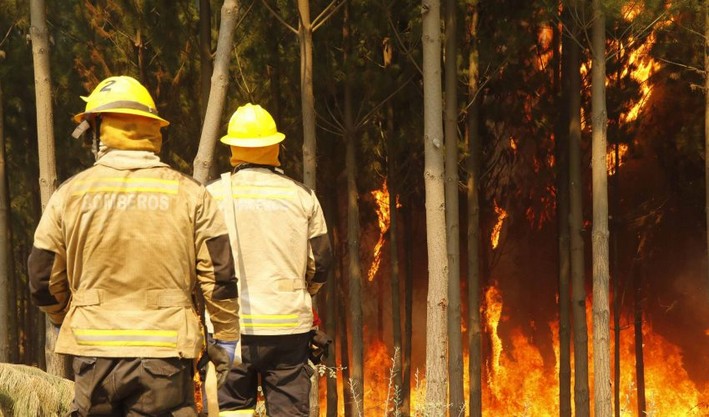The bill aimed at regulating the prevention of forest and rural fires has been in the Senate for over a year - and nearly 2 years total in the National Congress.
In this regard, the Government, parliamentarians, and municipalities have expressed the urgency of passing the initiative soon in preparation for the upcoming 2025-2026 fire season.
Currently, the country lacks regulations establishing structural and targeted measures for preventing rural-urban disasters like those of summer 2023 and the 2024 Viña del Mar tragedy.
In March 2025, after passing through the Chamber of Deputies and the Senate Agriculture Committee, the initiative reached the Finance Committee of the Upper House, chaired by Senator Ximena Rincón, where it remains to this day.
It's worth recalling that the bill presented by the Ministry of Agriculture together with the Ministry of Housing and Urban Development in October 2023 seeks to strengthen prevention strategy regarding fires, emphasizing coordination among municipalities, communities, landowners, and forestry companies. Additionally, it establishes stricter penalties for illegal or negligent burning.
According to the Executive branch, the initiative recognizes prevention as a priority and that emergency response cannot continue to be merely reactive. Accordingly, concrete measures are proposed such as firebreaks, involvement of organized communities, new management plans, coordination with the National Disaster Prevention and Response Service (Senapred) and the private sector. Furthermore, it includes collaboration with small landowners.
Regarding its slow processing, Biobío Senator Enrique van Rysselberghe (UDI) explained that "the bill has already been passed by the Agriculture Committee and is currently awaiting review by the Senate Finance Committee, which has been dedicated throughout this November to discussing the 2026 budget."
Similarly, the local parliamentarian provided his projection on the discussion of the initiative and the need to have it in place for the upcoming fire season about to begin.
"I hope the bill will be reviewed and passed by the Finance Committee during December, after which it should be voted on in the Senate chamber, completing its legislative process in the upper house before the end of this year 2025," stated the senator.
Agriculture
In August of this year, when consulted by Diario Concepción, Agriculture Minister Ignacia Fernández confirmed the project as a priority for the portfolio and stated that "one of our main challenges is to continue pushing forward relevant bills for the ministry and the country. Among them is the Forest Fire Prevention Law, which strengthens the national care and prevention strategy through new tools and improving existing ones."
Similarly, the Secretary of State argued that the bill includes key measures such as "Urban-Rural Interface Zones (ZIUR), Buffer Zones, preventive management plans, and incentives for agroforestry systems."
Biobío
It should be remembered that in the analysis conducted within the framework of the Risk Map, released in April of this year, it is highlighted that the Biobío Region has the largest area with threat in the very high category, equivalent to 6.5% of its territory (156,270 ha), mostly concentrated in Greater Concepción, Arauco, Lebu, and Curanilahue; followed by the Valparaíso Region with 4.7% of its territory (75,556 ha) in this category, mostly focused in Greater Valparaíso, and the communes of La Ligua, Casablanca, and San Antonio.
Meanwhile, in third place is the Metropolitan Region, whose area under very high threat condition corresponds to 4.5% (69,323 ha), which is mostly represented in the territories surrounding Santiago city, and the communes of Melipilla, Curacaví, and Alhué.
Source:Diario Concepción







Comentarios (0)
No hay comentarios aún. ¡Sé el primero en comentar!
Deja un comentario